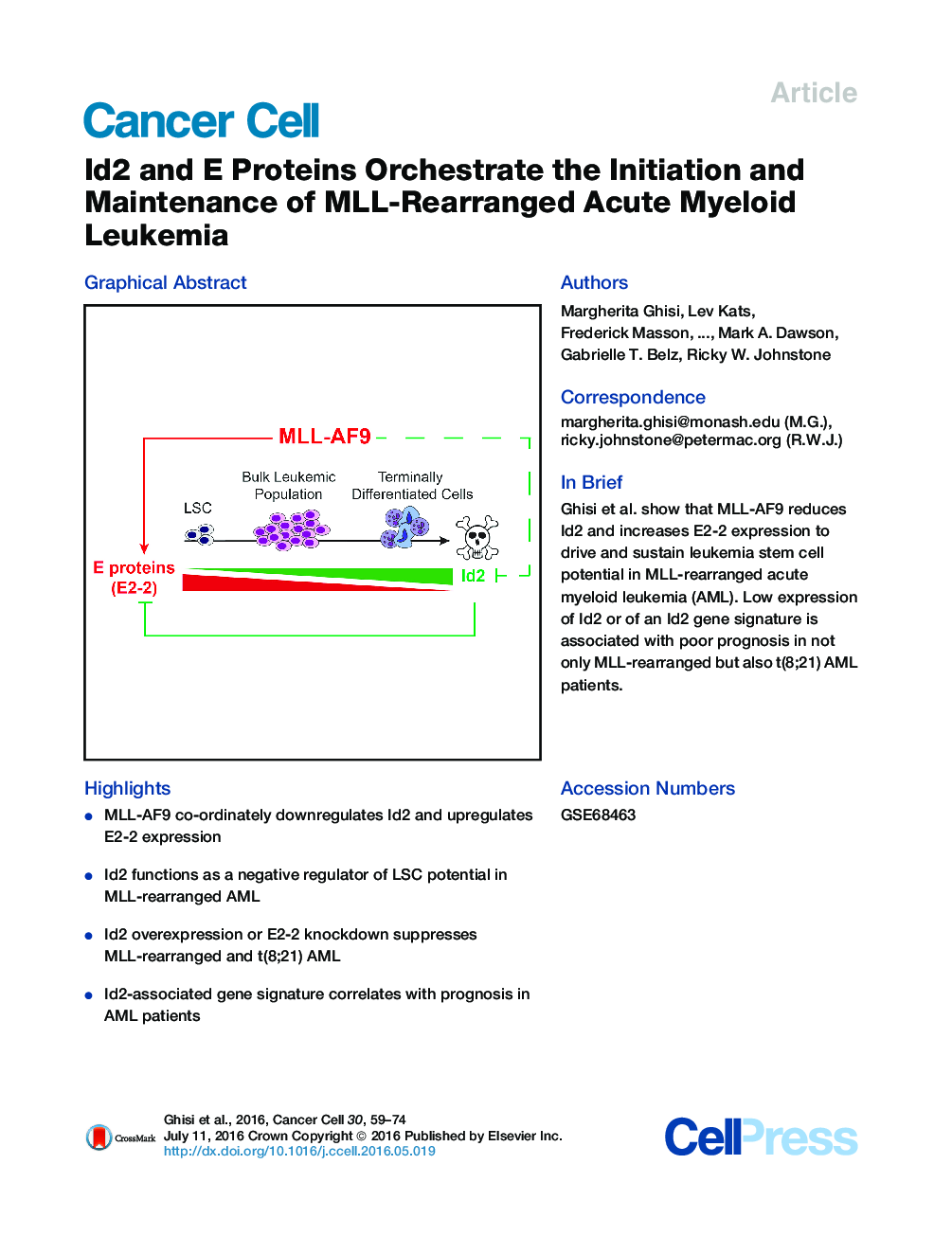| Article ID | Journal | Published Year | Pages | File Type |
|---|---|---|---|---|
| 2106705 | Cancer Cell | 2016 | 16 Pages |
•MLL-AF9 co-ordinately downregulates Id2 and upregulates E2-2 expression•Id2 functions as a negative regulator of LSC potential in MLL-rearranged AML•Id2 overexpression or E2-2 knockdown suppresses MLL-rearranged and t(8;21) AML•Id2-associated gene signature correlates with prognosis in AML patients
SummaryE proteins and their antagonists, the Id proteins, are transcriptional regulators important for normal hematopoiesis. We found that Id2 acts as a key regulator of leukemia stem cell (LSC) potential in MLL-rearranged acute myeloid leukemia (AML). Low endogenous Id2 expression is associated with LSC enrichment while Id2 overexpression impairs MLL-AF9-leukemia initiation and growth. Importantly, MLL-AF9 itself controls the E-protein pathway by suppressing Id2 while directly activating E2-2 expression, and E2-2 depletion phenocopies Id2 overexpression in MLL-AF9-AML cells. Remarkably, Id2 tumor-suppressive function is conserved in t(8;21) AML. Low expression of Id2 and its associated gene signature are associated with poor prognosis in MLL-rearranged and t(8;21) AML patients, identifying the Id2/E-protein axis as a promising new therapeutic target in AML.
Graphical AbstractFigure optionsDownload full-size imageDownload high-quality image (108 K)Download as PowerPoint slide
